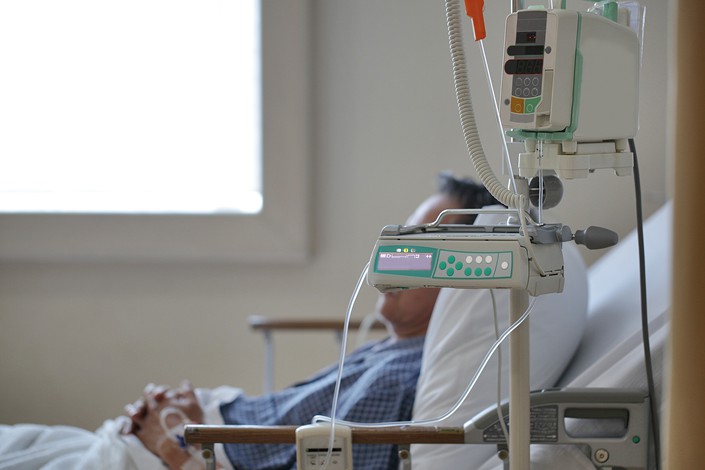Whistleblower Doctor Challenges Finding in Cancer Treatment Feud

An online feud surrounding allegations of medical malpractice and professional ethics violations against a Shanghai-based doctor continued brewing as a whistleblower challenged the findings of an initial probe by authorities.
Zhang Yu, who levied dramatic online accusations against a Shanghai doctor’s treatment of a cancer patient, said he disagreed with the results of an investigation by the National Health Commission (NHC) and urged a public discussion with experts from the commission regarding the probe.
Zhang, who identified himself as an oncologist at Peking University Third Hospital in Beijing, ignited a heated debate last month when he accused doctors from dozens of hospitals of “mass misconduct” in their treatment of cancer patients, resulting in higher death rates.
The doctors include physicians from top hospitals in Beijing, Shanghai and Guangzhou, Zhang said in an article posted on Zhihu, China’s equivalent to the question-and-answer site Quora.
One of the doctors accused by Zhang is Lu Wei, a deputy chief physician at Xinhua Hospital Affiliated to Shanghai Jiao Tong University School of Medicine. In several online posts since last October, Zhang alleged that Lu deceived a patient with advanced gastric cancer, leaving the patient’s relatives to pay unexpectedly high medical bills.
The NHC launched an investigation of Lu, who was suspended from duty following Zhang’s allegations. The commission said April 27 that initial results of the ongoing investigation into Lu showed the treatment process was “basically compliant” with the law and regulations.
But Zhang told media in an interview that he disputed the conclusion. In an article published Wednesday on Zhihu, Zhang said he expected a public discussion with NHC experts on whether Lu’s treatments violated professional ethics.
According to Zhang’s previous posts, Lu illegally used NK (natural killer) cell-based cancer immunotherapy, which isn’t yet approved in China for clinical use.
A Caixin investigation found that Lu had business links to a company that allegedly administered the NK therapy to a gastric cancer patient Lu treated. The patient died in December.
The patient’s daughter told Caixin Lu recommended that her father take the therapy at a cost of 30,000 yuan ($4,634) per injection, but the patient’s condition did not improve. Lu said he didn’t suggest the therapy on his own initiative.
In one of his posts Zhang said the treatment accelerated the patient’s death and cost more than 10 times as much as traditional treatments.
Zhang also said Lu “highly recommended” that his cancer patients have their genomes sequenced and do genetic tests at Shanghai Iread Gene Technology Co. Ltd., a biotech company established in 2016. Zhang said the genetic method was not effective during the course of chemotherapy.
Lu argued that his motivation was to avoid ineffective treatment of patients and said he was not paid a commission.
Jiao Yahui, deputy director of the Medical Administration Bureau of the NHC, told a press conference in late April that health authorities would thoroughly investigate and seriously punish those responsible for any wrongdoing.
In the Wednesday article, Zhang said the NHC’s conclusion that Lu’s practices were “basically compliant” offered support to medical malpractice and will undermine China’s cancer treatment standards.
Zhang called for more official disclosure to explain the investigation to the public and provide official guidance to patients undergoing cancer treatment.
“Supervision is key to medical services, and any malpractice by doctors in search of profits should not be allowed as it will put patients’ lives at risk,” Zhang wrote.
Contact reporter Han Wei (weihan@caixin.com) and editor Bob Simison (bobsimison@caixin.com)
Download our app to receive breaking news alerts and read the news on the go.
Follow the Chinese markets in real time with Caixin Global’s new stock database.

- PODCAST
- MOST POPULAR






